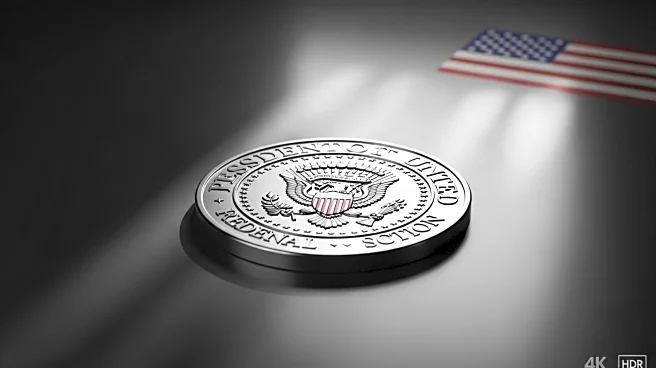What's Happening?
In 1963, President John F. Kennedy took decisive action to enforce the integration of the University of Alabama by federalizing the Alabama National Guard. This move came after Alabama Governor George Wallace attempted to block the entrance of African-American students, fulfilling his campaign promise to prevent integration. The federal intervention was part of a broader effort during the civil rights era to ensure compliance with federal court orders mandating desegregation. The incident was one of several instances where the U.S. president called in the military domestically to uphold civil rights, highlighting the federal government's role in addressing state-level resistance to integration.
Why It's Important?
The federalization of the Alabama National Guard by President Kennedy was a pivotal moment in the civil rights movement, demonstrating the federal government's commitment to enforcing desegregation laws. This action underscored the tension between state and federal authorities during the era and highlighted the challenges faced in implementing civil rights legislation. The intervention not only facilitated the integration of educational institutions but also set a precedent for federal involvement in civil rights issues, contributing to the passage of significant legislation like the Voting Rights Act of 1965. It marked a turning point in the struggle for racial equality in the United States.
What's Next?
The integration of the University of Alabama was part of a series of federal actions aimed at dismantling segregation in the South. Following this event, further federal interventions were anticipated as civil rights activists continued to push for equality across various sectors. The federal government's role in enforcing civil rights laws was expected to expand, with potential implications for other states resisting integration. The ongoing civil rights movement would likely see increased federal involvement in ensuring compliance with desegregation orders, influencing future policies and legislation.
Beyond the Headlines
The federal intervention in Alabama highlighted the ethical and legal dimensions of the civil rights struggle, raising questions about state sovereignty and the federal government's authority to enforce civil rights laws. It also reflected broader cultural shifts towards racial equality and the growing demand for social justice. The event contributed to long-term changes in public attitudes towards race and integration, influencing subsequent generations and shaping the discourse around civil rights in America.









